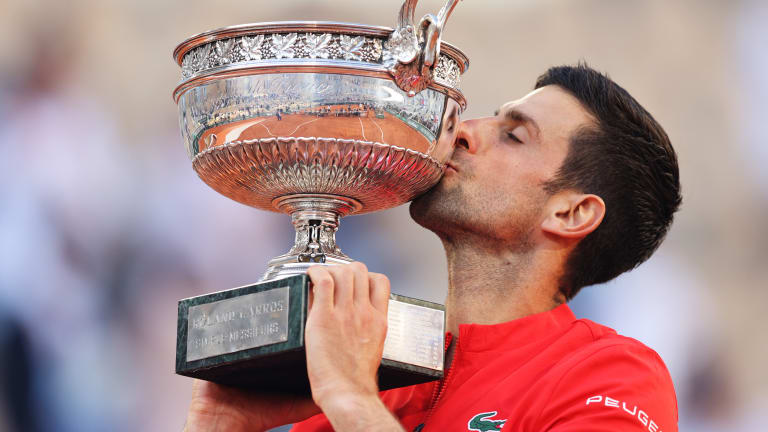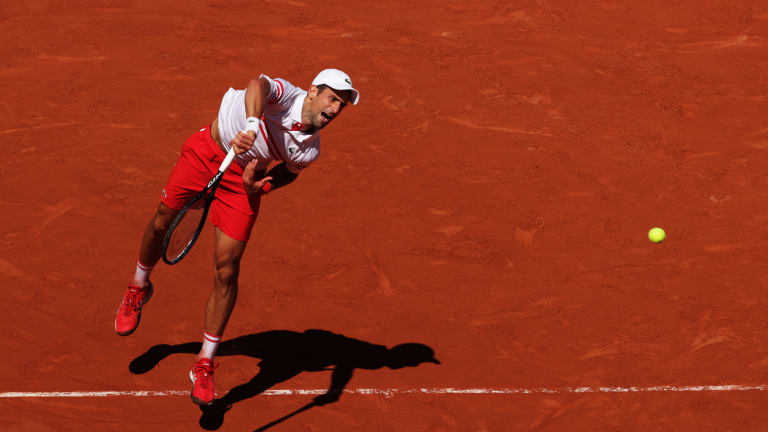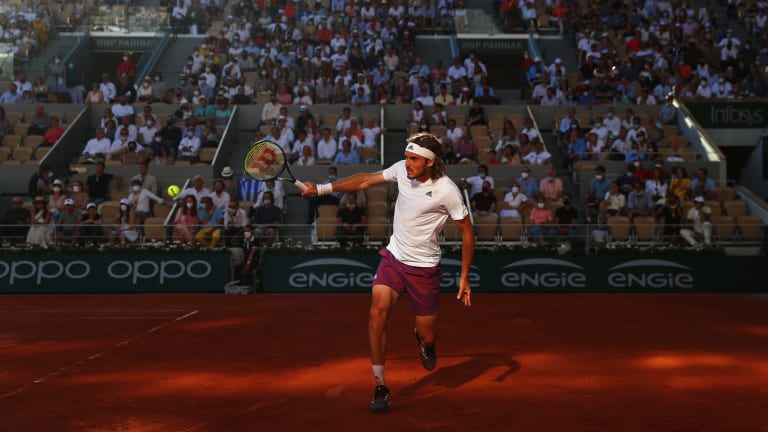Roland Garros
The Rally: Is Novak Djokovic's Roland Garros triumph the most remarkable of his 19 Slam-title runs?
By Jun 13, 2021Roland Garros
Rafael Nadal withdraws from French Open with hip injury; 2024 likely to be last year on tour
By May 18, 2023Roland Garros
French Open organizers give wild cards to veterans Paire and Mladenovic
By May 15, 2023Roland Garros
Novak Djokovic: 19 stats for his 19th Grand Slam title
By Jun 14, 2021Roland Garros
Five Things To Know About Barbora Krejcikova’s Win At Roland Garros
By Jun 14, 2021Roland Garros
Ranking Reaction: Tsitsipas hits new high of No. 4, Krejcikova surges into Top 20
By Jun 14, 2021Roland Garros
How do Novak Djokovic, Rafael Nadal and Roger Federer stack up, post-Paris?
By Jun 14, 2021Roland Garros
Dani's Take: Krejcikova's triumph, Djokovic's usurpation, and taking stock of the final 72 hours in Paris
By Jun 12, 2021Roland Garros
The Rally: At a French Open where new faces confronted big moments, Barbora Krejcikova completes a breakout singles run
By Jun 12, 2021Roland Garros
With ruthless determination and trademark wit, Li Na's Paris triumph still stands out 10 years later
By Jun 12, 2021The Rally: Is Novak Djokovic's Roland Garros triumph the most remarkable of his 19 Slam-title runs?
A look at all the little things that make the Serb the nonpareil competitor he is, after Djokovic came through successive four-hour wins over Rafael Nadal and Stefanos Tsitsipas to summit the top of the French Open mountain.
Published Jun 13, 2021
Advertising
Advertising

Djokovic won a Grand Slam final for the first time after falling behind two sets.
© Getty Images
Advertising

In the three sets Djokovic won Sunday, the world No. 1 did not face a break point.
© Getty Images
Advertising

A win over the Serb would have seen Tsitsipas become just the fifth man to beat each member of the Big 3 in a major.
© Getty Images